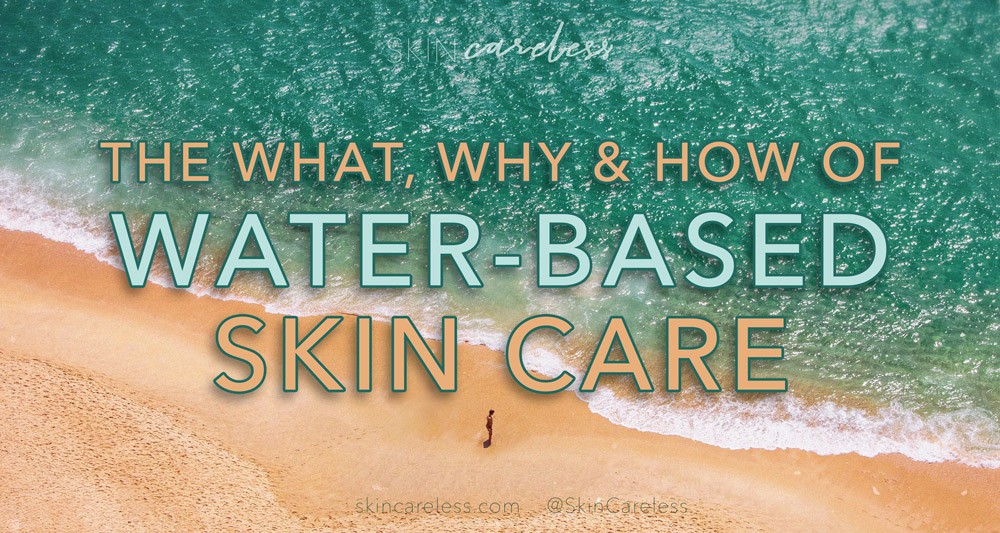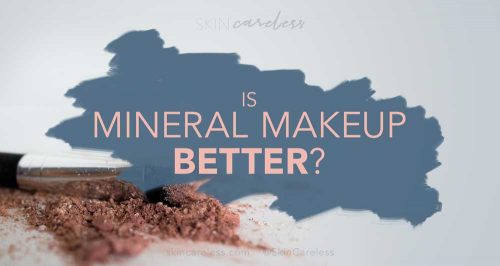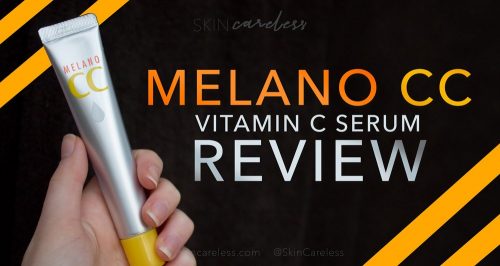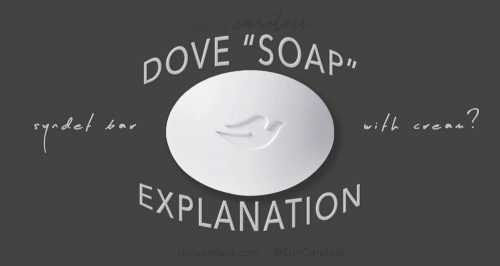What does “water-based” mean?
Skin care products usually contain a small amount of active, essential ingredients, and a whole heap of what’s called a base. A base is a cheap ingredient or blend of ingredients that’s easily tolerated by everyone’s skin, provides lubrication and a something for all the other ingredients to be diluted in.
There are three main categories of bases – water, silicone and oil.
Each base has a different effect and use case.
Being “water-based” refers to when a product – or all your products – are made with water as the primary base ingredient, as opposed to silicone or oil.
What are the benefits of a water-based routine?
While it’s not for everyone, for some people there can be some definite upsides to choosing water-based products or even a whole routine. So, why might you want to choose water-based products specifically?
Matching bases cause less compatibility issues
It’s nice if all your products match – won’t pill up or block one another from absorbing. Products with mismatched bases applied one right after the other can also often cause pilling, where the products seems to ball up and rub off..
Water is at the crux of hydration
Water truly is the only way to hydrate the skin. Hydration is simply a measurement of water content. All other ingredients that claim to hydrate are in some way increasing water content in the skin. Thus, water-based products are the best way to instantly improve dehydrated skin, no matter how oily.
Less chance of reaction or breakouts
These formulas can be better tolerated by sensitive skin that other bases – they have the only universally safe ingredient, water! Often people report reactions to oils, and occasionally silicones, due to their thickness which can clog more sensitive acne-prone skin. Water-based products absorb easily and without irritation.
Very cosmetically elegant
The fast absorption of water-based products means these kinds of skin care products are very nice to wear. They feel lightweight, absorb quickly, and leave no residue.
Easy to wash off
As most of the time a water-based product is primarily oil- and silicone-free, the ingredients are usually all water soluble. Thus, the products rinses clean quite easily compared to richer, thicker products, making removing your products and cleansing your skin at the end of the day a breeze.
Who is a water-based routine for?
The benefits of a water-based routine can be the perfect things for some people. Here’s who:
- Someone with mildly dehydrated skin, especially if they are normal-oily in skin type.
- Someone who is acne prone.
- Someone who is young and/or new to skin care.
When is a water-based routine not ideal?
For those people with very dry or severely dehydrated and irritated skin, going all water-based might not be the best move.
With the kind of skin that’s already begging for soothing ingredients and elasticity, you’ll usually need an emollient or occlusive (which are almost always more compatible with silicone or oil formulas) to calm down your rough skin and keep moisture locked in tight.
Beware of dehydration when using a water-based routine
The main concern with a water-based routine is, surprisingly, dehydration.
Emollient (softening) and occlusive (protecting) kind of effects are reserved for all the waxy, oily and other non water friendly ingredients. That means the rich and creamy products that keep water in your skin all day and soothe irritation just isn’t possible to produce with this kind of water-based formulation. So almost all the water-based products will be very lightweight and quick-absorbing.
Add in all the pure hydration you want to your skin, but some people are just too prone to drying back out again, be it because of their environment or a pre-existing skin condition. They need those richer silicone- and oil-based ingredients to prevent all that water escaping and going right back to square one.
So if you’re using an all water-based routine but notice your skin condition worsening, it may be that you need to finish up your routine with something a little heavier and oil- or silicone-based. Experiment with mixing and matching water-based and other products to find the balance that works for you.
Water-based skin care buying guide: what to look for and what to avoid in your products
Now you’re sure you want to give water-based products a go, here’s how to seek them out when looking at the shelves of options.
Look for:
Of course, the first place to look at a potential purchase is the ingredients list. Ingredients must be listed in order of highest percentage to lowest. This means that usually, the base is listed first. Check out the first few ingredients for water, and if you find it you’re on the right track. Don’t forget that water can be listed as “eau”, “aqua”, or “water”, depending on your location.
Take the information you need right from the front of the packaging, and keep your eyes peeled for “oil-free”. Many companies advertise their products as oil-free right there on the box (even though there’s nothing inherently wrong with oil). But that does make our job easier. It’s likely that an oil-free product will instead be water-based.
There are some ingredients that pair up perfectly with a water-based formula to give you extra substance and hydration. There include hyaluronic acid, glycerin, aloe, So if you find those, you’re on the right track to figuring out whether the formula is water-based, or at least likely water soluble.
Avoid:
To be really sure that your products are water-based, you need to check the ingredients list again. You’ll want to look out for some certain telltale ingredients that will help you determine if a product is one to avoid.
Silicones are easy to spot – they end in “-xane” or “-one”. If a silicone like this is high up on the list of ingredients, it likely means the product you’re checking out is silicone-based.
Obviously, oils are listed as ‘oil’, but sometimes ‘ester’ as well. Also look out for “butter”, “wax”, “extract”, “fat” and “hydrogenated” – the telltale signs of a formula containing other types of non water-soluble ingredients.
Note: It’s unlikely you’ll often find a formula totally free of these ingredients. Many products use a combination of all sorts of different ingredients. Just make sure oils and silicones aren’t one of the top main ingredients!
You’ll need to make your own judgement call if you see these ingredients lower down on the ingredients list. For some people, they may want to avoid all silicones and oils entirely, or you may be more comfortable having a little in there. Try some products out and see what works for you.
My recommendations
I’m gonna save you some time and give you some examples of skin products that are (mostly) water-based. Either pick up one of these products, or go check out their ingredients lists to get a feel for what you should be looking for yourself.
Because most cleansers are water-based (and even if they’re not, they’re getting washed off your skin anyway) let’s jump in right at moisturisers.
Best water-based moisturisers
Ole Henriksen C-Rush Brightening Vitamin C Gel Moisturiser
This is a light cream in a gorgeous orange jar ith a scent that’s sure to wake you up in the morning. Note that this does contain some jojoba esters – which are waxes, but one of the most skin-like and light waxes possible.
First Aid Beauty Ultra Repair Hydrating Serum
A lightweight, water-based hydration serum that’ll sink right into your skin. Perfect for oilier skin types who prefer to stay away from cream formulas.
The Ordinary Natural Moisturising Factors + HA
And of course, what would a list of my recommended products be without The Ordinary? Affordable, basic, does what it says, this is the perfect choice for a water-based moisturiser for sensitive skin or those on a budget. What more could you want?
Best water-based anti-ageing treatments
The Inkey List Collagen Booster Firming Peptide Serum
This is a new kid on the skin care block, boasting similar low prices and effective bare-bones formulas to The Ordinary. This peptide serum is a great entry way into anti-ageing skin care that’s not going to be too heavy even for younger, oilier skin, like many anti-ageing products tend to be.
Dr. Dennis Gross Ferulic + Retinol Brightening Solution
Antioxidant powerhouse ferulic acid and retinol work together with AHAs and BHA in this multi-functional anti-ageing serum.
Best water-based acne treatments
The Ordinary Niacinamide 10% + Zinc 1%
This combination of ingredients is an awesome first line of defense against mild acne. it’s anti-inflammatory and gentle, meaning you aren’t risking the irritation that can come with stronger treatments.
Murad Rapid Relief Acne Spot Treatment with 2% Salicylic Acid
Salicylic acid is a fantastic preventative acne treatment and effective against mild-moderate blackheads and whiteheads especially.
Benzoyl peroxide 2.5%
This is the gold-standard go-to treatment for moderate acne. And in a gel formula like it’s totally compatible with a water-based routine. Though there are formulas stronger than 2.5%, this concentration has been shown to be just as effective without the potential irritation.
Best water-based sunscreens
Dermalogica Active Clearing Oil Free Matte Daily Face Sunscreen SPF 30
Not only is this sunscreen water-based, but it also offers a great matte finish (unlike many sunscreens you’ve probably tried before).
Neutrogena Hydro Boost Water Gel Non-Greasy Moisturizing Sunscreen Lotion SPF 50
This sunscreen is a cheap and cheerful lightweight hydrating sunscreen formula. It does have a few oils lower down on the ingredients list, so keep that in mind.






Your blog posts are structured so well and you provide a lot of useful information. Thank you for the post it’s very informative.
Thank you!